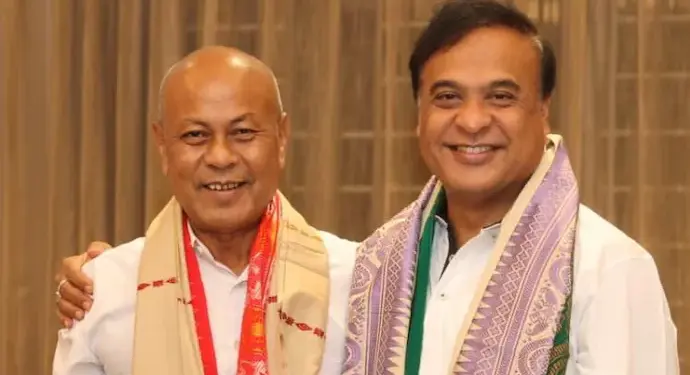In a new political development in Assam, Bodoland People’s Front (BPF) chief Hagrama Mohilary has declared that his party will not join the National Democratic Alliance (NDA) unless the United People’s Party Liberal (UPPL) is removed from the coalition.
Chief Minister Himanta Biswa Sarma on Saturday responded that the Bharatiya Janata Party (BJP) would take a call on alliance configurations “at the appropriate time.” Mohilary is scheduled to be sworn in as the Chief Executive Member of the Bodoland Territorial Council (BTC) on Sunday.
“All are with us. Gradually, all the issues will be resolved,” Sarma said, while acknowledging that both the UPPL and BPF cannot coexist in the same government. “At the right time, we will take the requisite decision. UPPL, BPF, and BJP — all three cannot be in government. There can be two in the government,” he added.
Mohilary, whose party secured a decisive victory in the recent BTC elections with 28 of 40 council seats, has insisted on clarity in alliances. “We have said that leave out UPPL, and we will join NDA. If they want BPF to be in NDA, they should oust UPPL first,” he said.
The UPPL, led by its president Pramod Boro, had displaced Mohilary and the BPF from power five years ago. In the latest council polls, UPPL won seven seats, while the BJP secured five. Despite contesting independently, the BJP avoided aggressive campaigning against either regional party, signaling hopes for a post-election alignment.
UPPL general secretary Raju Narzary on Saturday said the party would serve as a “responsible opposition” in the BTC while reaffirming its allegiance to the NDA. “Assam assembly election is approaching. We will now form committees in 15 assembly constituencies where we can win,” he said.
UPPL leaders further clarified that the party intends to remain a part of the NDA both at the state level until 2026 and at the central level until 2029.
Political observers say the evolving equation between the BPF, UPPL, and BJP will be crucial ahead of the 2026 Assam Assembly elections, with the Bodoland region once again emerging as a key battleground in state politics.





